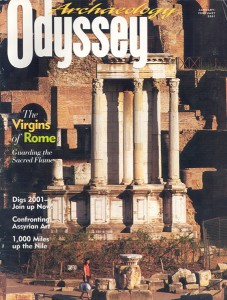Origins: …And by the People
Democracy we associate with the modern West and ancient Athens, but little in between.

Every four years millions of Americans, many of them united by little other than their shared citizenship, flock to schools, churches and other polling places to cast their ballots for our next president. On no other occasion do all Americans have the opportunity to vote for the same office, making presidential elections the most democratic feature of the American political system.
When we think of democracy, we usually think of the ancient Greeks, but identifying the exact origins of political practices can be tricky. Many of the city-states of the ancient Near East, for example, had popular assemblies in which citizens passed laws and elected officials (see Jacob Klein, “The Birth of Kingship: From Democracy to Monarchy in Sumer”). But these states are seldom labeled democracies, and our own institutions do not trace directly back to theirs.
In looking for the origins of democracy, in fact, we will not find an unbroken tradition linking the democracies of the ancient world to those of the modern age. Democratic ideals and values disappeared from western Europe during the Middle Ages, and when they resurfaced in the 17th and 18th centuries, they were very different from their ancient predecessors. The roots of modern democracies lie in more recent times.
Already a library member? Log in here.
Institution user? Log in with your IP address.

